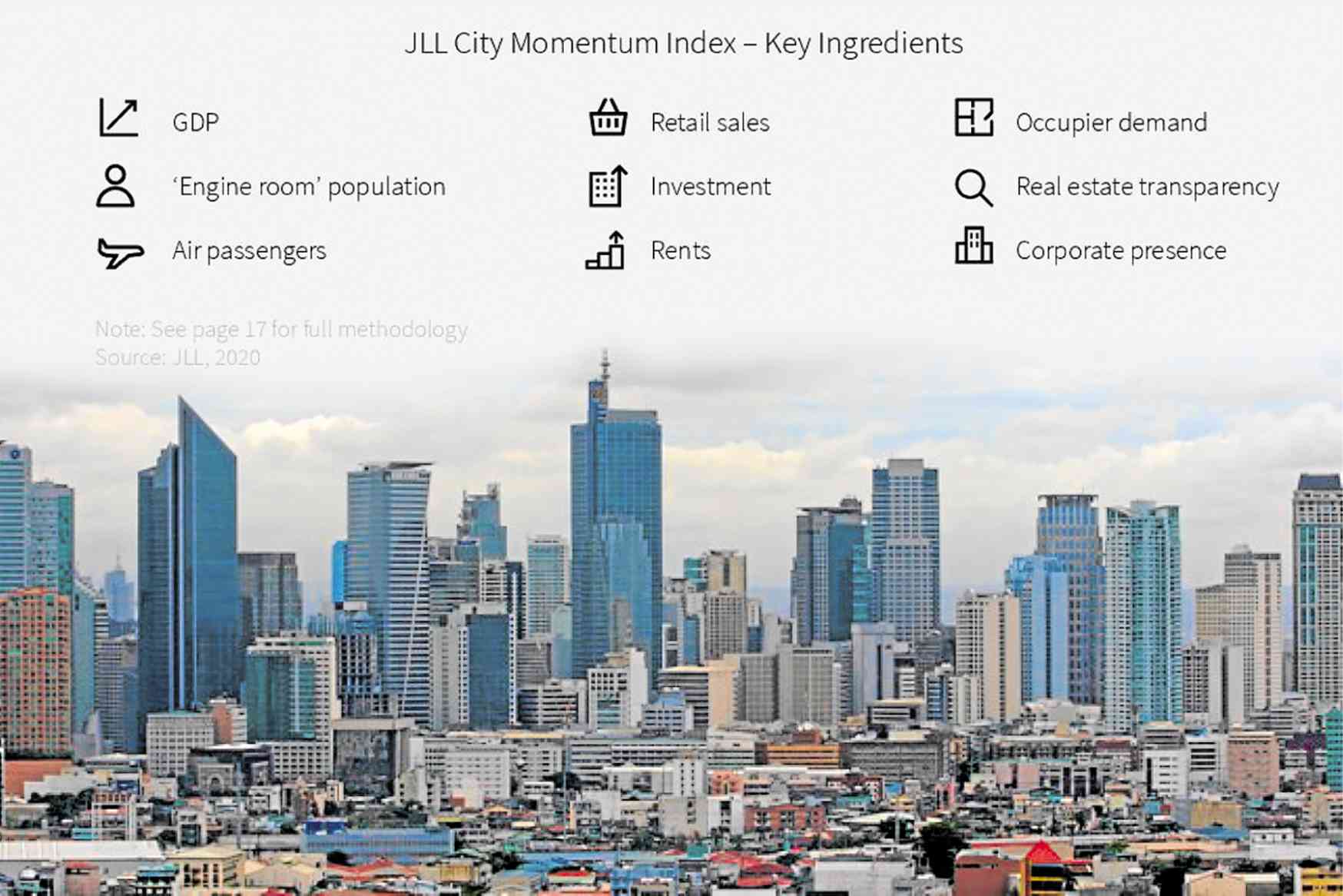Manila among most dynamic cities
Manila rose four notches to rank eighth among 130 business hubs in a global index that identifies the world’s “most dynamic cities.”
The City Momentum Index 2020 by JLL Global Research said Manila currently sits in its highest ever position, on the back of an “advantageous demographics, a robust domestic economy and a skilled talent base (which) are supporting a dynamic real estate market.”
“Business processing outsourcing (BPO) is driving office net absorption, as the sector moves into higher-value activities such as animation, gaming and healthcare,” the index stated.
Manila, which is one of the three Southeast Asian cities in the Global Top 20, ranked 12th in last year’s edition, and 18th in the 2018 City Momentum Index.
JLL’s City Momentum Index 2020 identifies the world’s most dynamic cities from a real estate perspective. It combines socio-economic and commercial property metrics to provide fresh insights into the rapidly evolving geography of business activity, covering 130 major established and emerging business hubs across the globe.
Results showed that while evidence points to a global economy moving into a synchronized slowdown, several cities still exhibit remarkable dynamism, particularly in emerging Asia.
Taking the topmost spot in the City Momentum Index 2020 is Hyderabad, followed by Bengaluru, which are both cities in India. Ho Chi Minh City takes the third place, followed by Nairobi and Chennai.
Challenges
The JLL research further pointed out that “while fast-growth cities are magnets for people, business and investment, they are also facing significant challenges associated with rapid urban growth such as environmental degradation, congestion, overcrowding, social inequalities, security and affordability.”
For instance, climate change is leading to an increase in the frequency and severity of extreme weather events such as heat waves, flooding and drought, with which many fastgrowing cities are ill-equipped to deal. Poor urban planning and unchecked real estate construction are compounding the problems, making cities vulnerable to weather extremes.
Rapid urbanization and strong economic growth are likewise putting a huge pressure on existing infrastructure, said JLL Global Research. Many cities, which have become among the world’s most congested, are failing to keep pace with the growing demands for high-quality transport and utilities, and consequently they have become among the world’s most congested cities.
Metro Manila, for its part, is undergoing a major infrastructure push to alleviate chronic congestion and unbalanced development, through the Philippine government’s ambitious P8-trillion Build, Build, Build initiative.
“Cities are being forced to adapt at a pace and scale never experienced before, with huge pressures to move to a low- carbon future and to respond to climate change, rapid economic transition and shifting quality-of-life expectations. Many of these pressures are most intense in those high-momentum cities in emerging economies where the challenges of absorbing rapid demographic, social and economic change are most acute,” the research stated.
Essentially, all these information only point to need for cities to become more resilient to climate change, economic shocks and geopolitical disruption. They must act with greater responsibility to reduce carbon emissions, embrace the circular economy, promote a more equitable society, improve personal security and increase biodiversity. And the real estate industry is deemed a crucial part of this.
“The real estate industry will need to play a greater role in helping to meet these urban challenges through promoting sustainable, scalable and smart development; adopting regenerative construction processes; supporting ‘good densification’; improving transparency; encouraging micro-mobility; and creating thriving, inclusive, safe and affordable communities,” the report further said.















